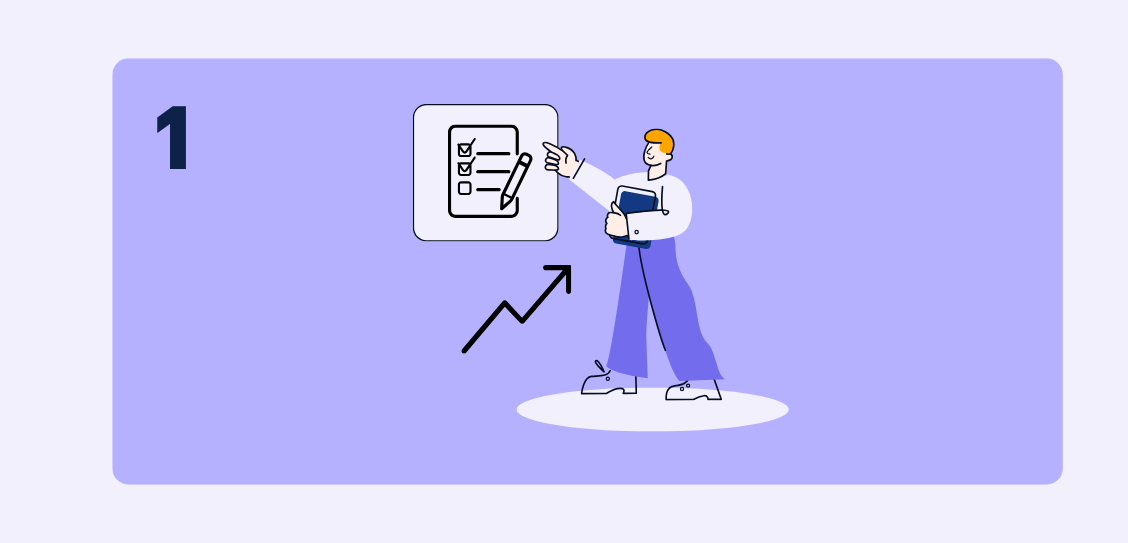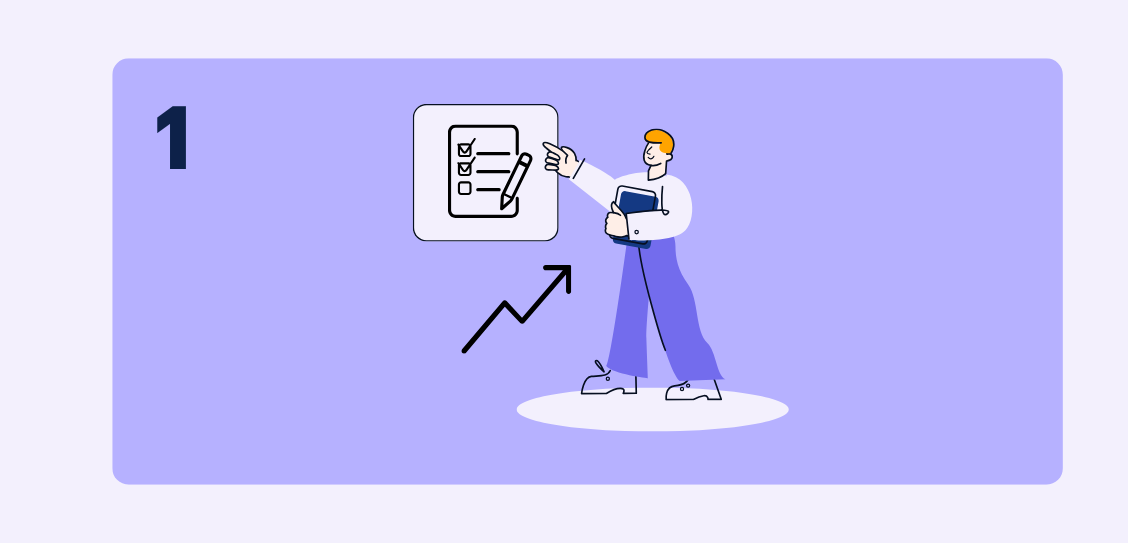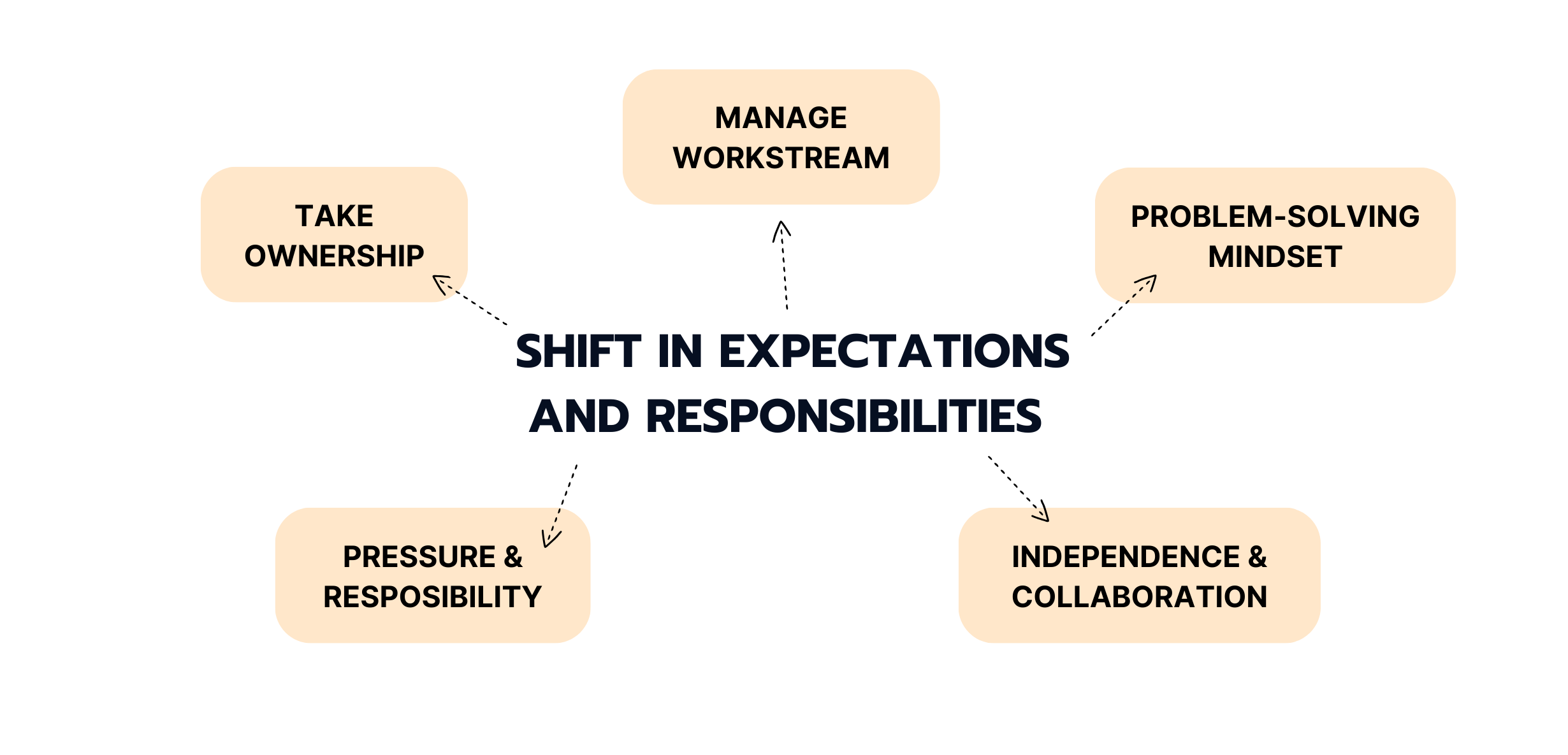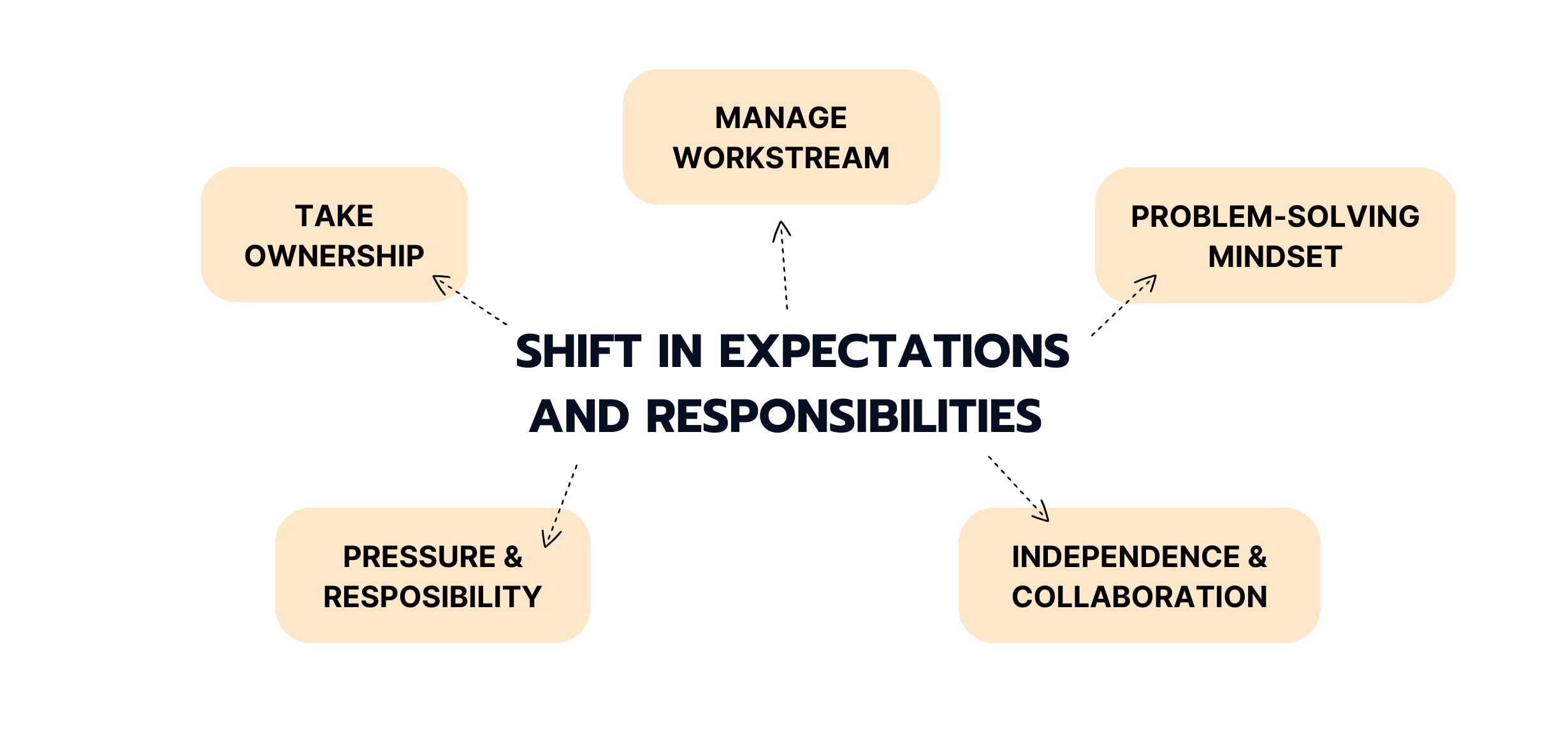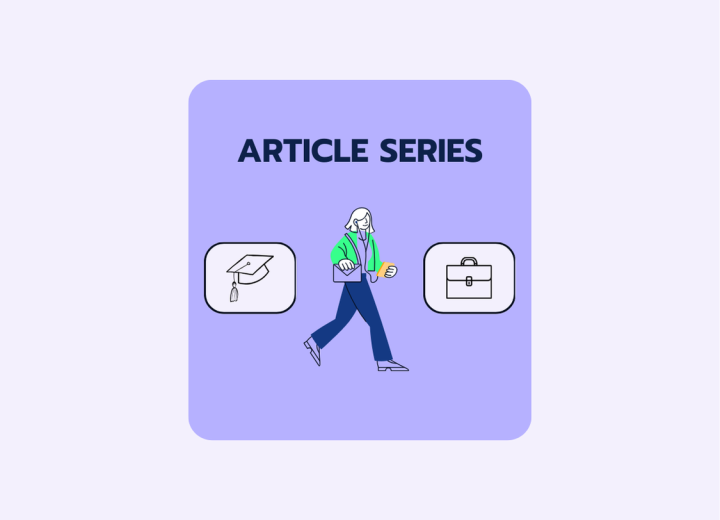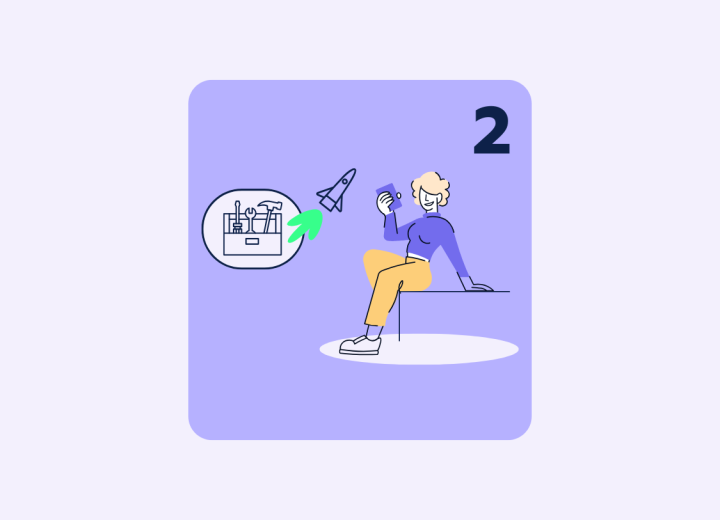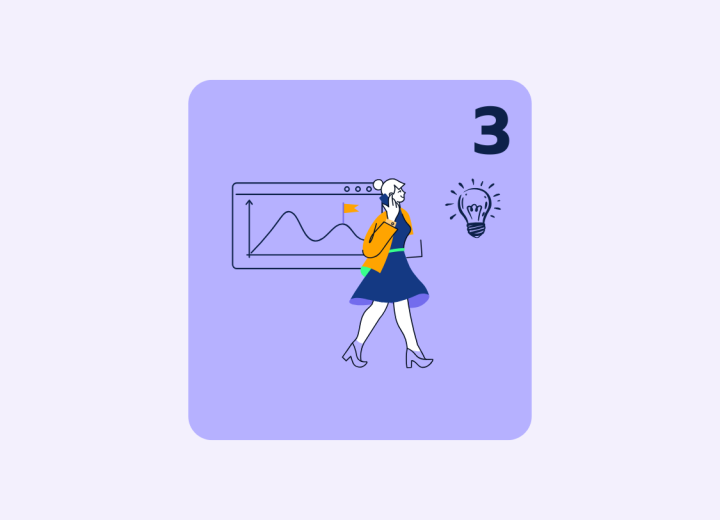When you become a full-time consultant, you are no longer the “new kid”. The firm will now have a lot more expectations from you, and in turn, you will also have a lot more and lot bigger responsibilities to manage. This transition can be daunting, as you move from a structured, closely supervised time that focuses more on learning and testing to one that demands greater autonomy, initiative, and accountability.
🔎 Let's take a look at the five changes in expectations from intern to full-time position:
